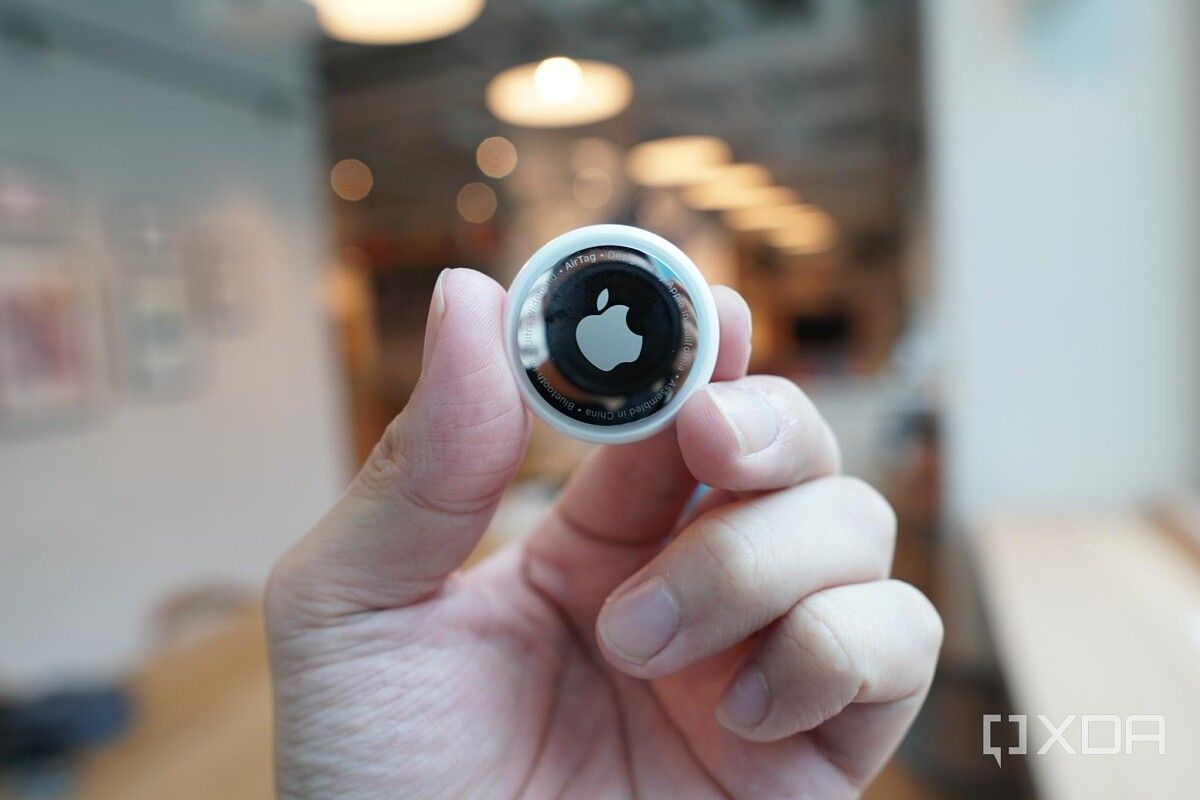Apple released AirTags in 2021, the company's long-awaited answer to Bluetooth tracking tags like Tile and Samsung Galaxy SmartTag. Apple's "Find My" network has a much greater reach than any of its competitors, since every iPhone in the world is connected to it, which has a downside — AirTags are increasingly being used for stalking and other abuse. Apple announced a series of changes on Thursday aimed at combating misuse, which will be rolled out throughout 2022.
[sc name="pull-quote-right" quote='"We also have seen reports of bad actors attempting to misuse AirTag for malicious or criminal purposes."' ]
Apple said in a news announcement, "We’ve become aware that individuals can receive unwanted tracking alerts for benign reasons, such as when borrowing someone’s keys with an AirTag attached, or when traveling in a car with a family member’s AirPods left inside. We also have seen reports of bad actors attempting to misuse AirTag for malicious or criminal purposes. [...] Through our own evaluations and these discussions, we have identified even more ways we can update AirTag safety warnings and help guard against further unwanted tracking."
The first change will arrive in "an upcoming software update," and will warn people during the AirTag setup process that the device is only intended to be used with your own belongings, and that law enforcement can request identifying information about the owner of an AirTag. Apple is supposedly complying with all law enforcement requests related to AirTags, which Apple says has already led to criminal charges in some cases.
Apple also plans to improve the "Unknown Accessory Detected" alert that some people might have noticed on their iOS devices. The alert doesn't appear for AirTags, only other accessories that can use the Find My network (such as AirPods), but Apple will change this to display the name of the device in the same update as the above-mentioned setup warning.
Finally, Apple is working on a series of updates that hopes will curb other abuse. People will be able to use Precision Finding to locate AirTags from an unwanted tracking alert, just like you can already do with your own AirTags. Apple is also tweaking how soon an unknown AirTag or Find My network accessory is detected traveling with a person, and the sound that plays when an AirTag is lost will be more audible.
Apple's changes might help reduce abuse with AirTags, but there are already workarounds for some of the planned mitigations. PCMag reported last week that at least one person on Etsy was selling modified AirTags with the speaker removed, so the sound that AirTags make when they are lost or detected on a person won't be heard. This announcement also didn't include any information about making it easier for people not using Apple devices to detect AirTags — the company launched an Android app in December for that purpose, but it doesn't offer the same background-scanning protection as iPhones.

